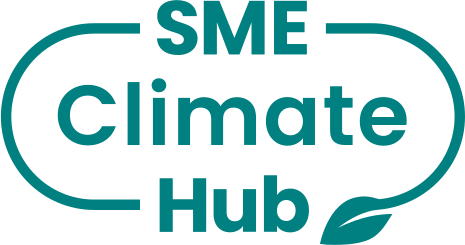See the steps your company can take towards a more sustainable future through our open resources.
Kaiasm Ltd's Climate Report
Introduction *
Commitment and Targets *
Own Emissions *
Value Chain Emissions *
(optional)Climate Solutions *
(optional)Management, Strategy and Climate Risk *
(optional)Results, Challenges and Outlook *
Introduction *
1.1 Reporting year
*2023
1.1.1 Reporting period
*from 10.2022 to 9.2023
1.2 Describe your business activities
*1.4 Number of employees in the reporting year
*1.4.1 Full-time equivalent (FTE) or headcounts
*1.5 Let us know if your company is a parent company or subsidiary
*Commitment and Targets *
2.1 Net zero target year
*2.1.1 Base year
*2.2 Near-term target
*50% of absolute total emission reduction from my base year by 2030
Own Emissions *
3.1 To reduce emissions in line with my commitment, my company has a plan and is taking action
*Energy consumption
3.2 Total energy consumption
*3.3 Renewable energy
*Scope 1 emissions
3.4 Scope 1 emissions
*Scope 2 emissions
3.5 Location based scope 2 emissions
*3.6 Market based scope 2 emissions
*3.7 Describe your plans and actions taken to reduce scope 1 & 2 emissions.
*3.8 Describe the calculation methodology and comment on the data accuracy, including any tools/methods used to calculate.
*Value Chain Emissions (optional) *
Scope 3 emissions
4.1 Have you measured any of your scope 3 emissions?
*4.1.1 Total scope 3 emissions
*Supply chain related - upstream emissions
Customer related - downstream emissions
4.1.17 Do you have a plan and are taking action to reduce emissions from your value chain?
*Yes
4.2 Have you asked any of your suppliers to set a net zero target (either voluntarily or as a requirement)?
*4.3 Have you communicated your commitment and actions to any of your customers?
*4.4 Describe the calculation methodology and comment on the data accuracy and any tools used to calculate your scope 3 emissions.
*Climate Solutions (optional) *
5.1 Do you classify any of your existing goods and/or services as a climate solution?
*Management, Strategy and Climate Risk (optional) *
6.1 What governance processes do you have in place for your climate strategy? Choose as many as are applicable.
*Person is responsible for climate strategy at board level
6.1.1 Please describe their position and responsibility.
*6.1.2 Is this person (or another at executive and board level) also responsible for climate risk?
*6.2 Have you started to identify and assess your companies climate risks and opportunities?
*6.2.1 Where are the climate risks you've identified?
*6.2.2 How are you managing these climate risks? Choose as many as are applicable.
*We've started to prioritise climate risks,We've Identified plans for adaptation to mitigate these risks,We've Integrated these adaptation plans into business practices
6.2.3 Provide any additional comments or context on your climate risks:
*6.3 Have you integrated climate and/or nature into your company mission statement or shareholder agreements? If yes, describe how.
*No
6.4 Have you taken actions this year outside of your emissions to accelerate climate progress?
*No
Results, Challenges and Outlook *
7.1 Provide any additional comments or context on your annual results and progress from previous years.
*7.2 Do you face any key challenges in reducing emissions?
*Reducing scope 2 emissions,Reducing scope 3 emissions,Limited control over energy use in buildings,Balancing emission reductions with business growth,Complexities in managing supply chain emissions,Slow societal and economic progress on climate action,Insufficient policies or government incentives,Time constraints,Insufficient funding,Inaccurate or insufficient data,Low return on investment,Limited influence over suppliers
7.3 Has there been any third party validation of the data submitted in this report?
*No

Kaiasm Ltd's Climate Report
Kaiasm Ltd's Climate Report - 2023
Introduction *
1.1 Reporting year
*2023
1.1.1 Reporting period
*from 10.2022 to 9.2023
1.2 Describe your business activities
*1.4 Number of employees in the reporting year
*1.4.1 Full-time equivalent (FTE) or headcounts
*1.5 Let us know if your company is a parent company or subsidiary
*Commitment and Targets *
2.1 Net zero target year
*2.1.1 Base year
*2.2 Near-term target
*50% of absolute total emission reduction from my base year by 2030
Own Emissions *
3.1 To reduce emissions in line with my commitment, my company has a plan and is taking action
*Energy consumption
3.2 Total energy consumption
*3.3 Renewable energy
*Scope 1 emissions
3.4 Scope 1 emissions
*Scope 2 emissions
3.5 Location based scope 2 emissions
*3.6 Market based scope 2 emissions
*3.7 Describe your plans and actions taken to reduce scope 1 & 2 emissions.
*3.8 Describe the calculation methodology and comment on the data accuracy, including any tools/methods used to calculate.
*Value Chain Emissions (optional) *
Scope 3 emissions
4.1 Have you measured any of your scope 3 emissions?
*4.1.1 Total scope 3 emissions
*Supply chain related - upstream emissions
Customer related - downstream emissions
4.1.17 Do you have a plan and are taking action to reduce emissions from your value chain?
*Yes
4.2 Have you asked any of your suppliers to set a net zero target (either voluntarily or as a requirement)?
*4.3 Have you communicated your commitment and actions to any of your customers?
*4.4 Describe the calculation methodology and comment on the data accuracy and any tools used to calculate your scope 3 emissions.
*Climate Solutions (optional) *
5.1 Do you classify any of your existing goods and/or services as a climate solution?
*Management, Strategy and Climate Risk (optional) *
6.1 What governance processes do you have in place for your climate strategy? Choose as many as are applicable.
*Person is responsible for climate strategy at board level
6.1.1 Please describe their position and responsibility.
*6.1.2 Is this person (or another at executive and board level) also responsible for climate risk?
*6.2 Have you started to identify and assess your companies climate risks and opportunities?
*6.2.1 Where are the climate risks you've identified?
*6.2.2 How are you managing these climate risks? Choose as many as are applicable.
*We've started to prioritise climate risks,We've Identified plans for adaptation to mitigate these risks,We've Integrated these adaptation plans into business practices
6.2.3 Provide any additional comments or context on your climate risks:
*6.3 Have you integrated climate and/or nature into your company mission statement or shareholder agreements? If yes, describe how.
*No
6.4 Have you taken actions this year outside of your emissions to accelerate climate progress?
*No
Results, Challenges and Outlook *
7.1 Provide any additional comments or context on your annual results and progress from previous years.
*7.2 Do you face any key challenges in reducing emissions?
*Reducing scope 2 emissions,Reducing scope 3 emissions,Limited control over energy use in buildings,Balancing emission reductions with business growth,Complexities in managing supply chain emissions,Slow societal and economic progress on climate action,Insufficient policies or government incentives,Time constraints,Insufficient funding,Inaccurate or insufficient data,Low return on investment,Limited influence over suppliers
7.3 Has there been any third party validation of the data submitted in this report?
*No
Not sure how to start?
See the steps you can take and get help building a plan to cut your business emissions today.
¿No estás seguro de por dónde empezar?
Revisa los pasos que puedes dar y obtén ayuda para elaborar un plan para reducir las emisiones de tu empresa hoy mismo.
لست متأكداً كيف تبدأ؟
اطلع على الخطوات التي يمكنك اتخاذها واحصل على المساعدة في وضع خطة لخفض انبعاثات شركتك اليوم.
Vous ne savez pas par où commencer ?
Découvrez les mesures que vous pouvez prendre et obtenez de l’aide pour élaborer un plan pour réduire les émissions de votre entreprise dès aujourd’hui.
Osäker på hur du ska börja?
Se vilka steg du kan ta och få hjälp med att utforma en plan för att minska dina företagsutsläpp idag.
Não sabe por onde começar?
Veja as medidas que você pode tomar e obtenha ajuda para elaborar um plano para reduzir as emissões da sua empresa hoje mesmo.
Ready to commit to lower emissions?
It’s easy to make the commitment. Just complete a form sharing your intent to reduce your emissions.
You’ll earn public recognition for taking the first step.
¿Listo para comprometerte a reducir tus emisiones?
Es fácil comprometerse. Solo tienes que completar un formulario compartiendo tu intención de reducir tus emisiones.
Ganarás reconocimiento público por tomar este primer paso.
هل أنت مستعد للالتزام بتقليل الانبعاثات؟
الالتزام سهل. ما عليك سوى تعبئة نموذج لمشاركة عزمك على تقليل انبعاثاتك.
سوف تحظى باعتراف عام باتخاذك الخطوة الأولى.
Prêt à vous engager pour réduire les émissions ?
S’engager est simple. Il suffit de remplir un formulaire indiquant votre intention de réduire vos émissions.
Vous gagnerez une reconnaissance publique pour avoir fait le premier pas.
Redo att åta sig att minska utsläppen?
Det är enkelt att göra åtagandet. Fyll bara i ett formulär där du delar med dig av din avsikt att minska dina utsläpp.
Du kommer att få offentligt erkännande för att du tagit det första steget.
Pronto para se comprometer com a redução das emissões?
É fácil assumir esse compromisso. Basta preencher um formulário informando sua intenção de reduzir suas emissões.
Você receberá reconhecimento público por dar o primeiro passo.
Register now to use our tools
Register now to use our tools

Stay updated!
Sign up for our newsletter to stay updated with the latest climate developments.
Log in to your account
Welcome back! Please enter your details.
Log in
Don't have an account? Create account to access our tools or make the SME Climate Commitment
Log in
Don't have an account? Create account to access our tools or make the SME Climate Commitment
Forgot password?
Please enter your email address. You will receive a link to create a new password via email.

 Go back
Go back

